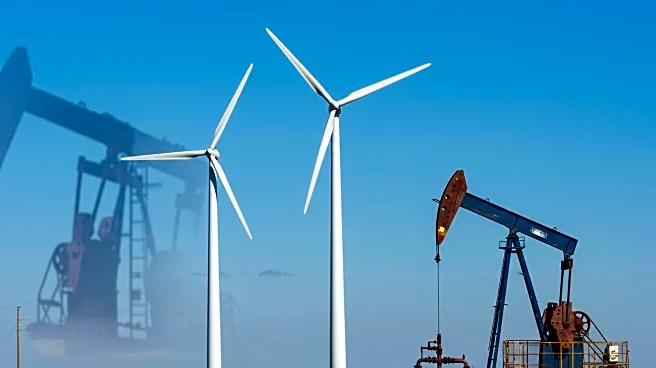What is the story about?
What's Happening?
Chinese cleantech companies are increasing their presence in emerging markets across Southeast and Central Asia and Latin America, as the U.S. reduces its investment in clean energy globally. President Trump has criticized wind and solar power, calling them 'the scam of the century,' and has vowed not to approve related projects. Meanwhile, Chinese firms are embedding proprietary technologies into local supply chains and promoting their technical standards through regional forums and bilateral agreements. This strategy includes transferring selective know-how while retaining control of critical intellectual property through joint ventures and infrastructure funded by the Belt and Road Initiative.
Why It's Important?
The expansion of Chinese cleantech firms in emerging markets signifies a shift in global clean energy leadership. As the U.S. retreats from clean energy investments, China is positioning itself as a hub for clean energy, potentially capturing long-term supply chains and influencing regional energy systems. This could lead to increased economic and technological influence for China in these regions, while the U.S. may lose opportunities for economic growth and innovation in the clean energy sector. The strategic positioning by China could also impact global climate change efforts and international relations.
What's Next?
The continued expansion of Chinese cleantech firms may lead to further integration of Chinese technologies and standards in emerging markets. This could result in increased dependency on Chinese intellectual property and infrastructure, potentially affecting local economies and energy policies. The U.S. may need to reassess its energy policies and international strategies to remain competitive in the global clean energy race. Additionally, the geopolitical implications of China's growing influence in clean energy could affect international trade and diplomatic relations.
Beyond the Headlines
The ethical and legal dimensions of China's strategy include concerns about intellectual property rights and the potential for economic dependency on Chinese technologies. The cultural impact of this expansion may also influence local communities and their adoption of clean energy practices. Long-term shifts could include changes in global energy markets and the balance of power in international climate agreements.

















